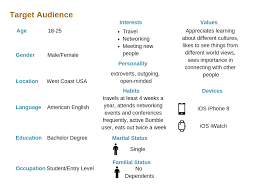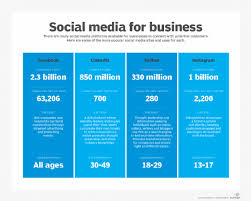Strategic Planning: The Key to Success in Business and Beyond
The Importance of Planning in Achieving Success
Planning is a crucial aspect of any endeavour, whether it be in business, education, or personal life. It involves setting goals, outlining strategies, and organising resources to achieve desired outcomes. Without proper planning, success can be uncertain and goals may remain unattainable.
One of the key benefits of planning is that it provides a roadmap for progress. By clearly defining objectives and breaking them down into actionable steps, individuals and organisations can navigate their way towards success more effectively. Planning helps to identify potential obstacles and allows for proactive measures to be put in place to overcome challenges.
Furthermore, planning enables better resource management. By allocating resources efficiently based on a well-thought-out plan, wastage can be minimised and productivity maximised. This leads to cost savings and improved performance in achieving goals.
Another important aspect of planning is that it fosters accountability. When goals are clearly defined and timelines are set, individuals are more likely to take ownership of their responsibilities and work towards meeting targets. Planning creates a sense of purpose and direction, motivating individuals to stay focused and committed to their objectives.
In addition, planning encourages innovation and creativity. When individuals engage in the planning process, they are encouraged to think critically about different approaches and solutions to achieve their goals. This can lead to the discovery of new ideas and opportunities that may not have been considered otherwise.
In conclusion, planning plays a vital role in achieving success across various aspects of life. It provides structure, clarity, and direction towards reaching desired outcomes. By investing time and effort into effective planning, individuals and organisations can increase their chances of success and accomplish their goals with greater efficiency.
8 Essential Tips for Effective Planning and Goal Achievement
- Set clear and achievable goals
- Create a detailed plan with specific tasks and deadlines
- Prioritise your tasks based on importance and urgency
- Break down large tasks into smaller, manageable steps
- Allocate dedicated time for planning and reviewing your progress
- Stay flexible and be willing to adjust your plan as needed
- Use tools like calendars or task management apps to stay organised
- Seek feedback from others to improve your planning skills
Set clear and achievable goals
Setting clear and achievable goals is a fundamental aspect of effective planning. By clearly defining what you want to accomplish and ensuring that your goals are realistic and attainable, you provide yourself with a clear direction and purpose. Clear goals help you stay focused, motivated, and committed to your plan, while achievable goals ensure that you can make steady progress towards success without feeling overwhelmed or discouraged. When your goals are specific and within reach, you are more likely to stay on track, make informed decisions, and ultimately achieve the desired outcomes.
Create a detailed plan with specific tasks and deadlines
Creating a detailed plan with specific tasks and deadlines is essential for effective planning. By breaking down larger goals into smaller, manageable tasks and assigning deadlines to each, individuals can track their progress more efficiently and stay focused on meeting key milestones. This approach helps to prevent procrastination, ensures accountability, and enables better time management. Having clear deadlines for each task also provides a sense of urgency and motivation to work towards completing them in a timely manner. Overall, creating a detailed plan with specific tasks and deadlines is a proactive strategy that enhances productivity and increases the likelihood of successfully achieving goals.
Prioritise your tasks based on importance and urgency
When it comes to effective planning, prioritising tasks based on their importance and urgency is essential. By identifying which tasks are critical and require immediate attention, individuals can focus their efforts on tackling the most pressing issues first. This approach ensures that vital tasks are completed in a timely manner, leading to better time management and overall productivity. Prioritising tasks based on importance and urgency helps individuals stay organised, maintain focus, and achieve their goals efficiently.
Break down large tasks into smaller, manageable steps
Breaking down large tasks into smaller, manageable steps is a valuable tip that can significantly enhance productivity and efficiency. By dividing a daunting task into smaller components, individuals can approach each step with greater focus and clarity. This approach not only helps in better time management but also reduces feelings of overwhelm, making the overall task more achievable. Breaking down tasks into manageable steps allows for a sense of progress as each sub-task is completed, providing motivation to continue moving forward towards the ultimate goal.
Allocate dedicated time for planning and reviewing your progress
Allocating dedicated time for planning and reviewing your progress is essential for effective goal achievement. By setting aside specific periods to plan out your tasks, set objectives, and outline strategies, you can ensure that you are working towards your goals in a focused and organised manner. Regularly reviewing your progress allows you to track your accomplishments, identify areas for improvement, and make necessary adjustments to stay on course. This proactive approach not only enhances productivity but also increases the likelihood of successfully reaching your desired outcomes.
Stay flexible and be willing to adjust your plan as needed
Staying flexible and being willing to adjust your plan as needed is a valuable tip in planning. While having a well-thought-out plan is essential, it is equally important to recognise that circumstances may change, requiring adaptations to your strategy. By remaining open to adjustments, you can respond effectively to unforeseen challenges or opportunities that arise along the way. This flexibility allows you to stay agile and proactive in pursuing your goals, ultimately increasing the likelihood of success in achieving them.
Use tools like calendars or task management apps to stay organised
Utilising tools such as calendars or task management apps is a valuable strategy to enhance organisational skills and improve productivity. By incorporating these tools into daily routines, individuals can effectively schedule tasks, set reminders, and track progress towards their goals. Calendars provide a visual representation of upcoming events and deadlines, while task management apps offer features like prioritisation and collaboration for efficient task handling. Embracing these tools can streamline workflow, reduce stress, and ensure that important responsibilities are not overlooked.
Seek feedback from others to improve your planning skills
Seeking feedback from others is a valuable tip to enhance your planning skills. By soliciting input from colleagues, mentors, or stakeholders, you can gain fresh perspectives and insights that may help you identify blind spots or potential areas for improvement in your planning process. Constructive feedback can provide valuable guidance on refining your strategies, setting more realistic goals, and considering alternative approaches that you may not have thought of on your own. Embracing feedback as a tool for growth can ultimately lead to more effective planning and better outcomes in achieving your objectives.












